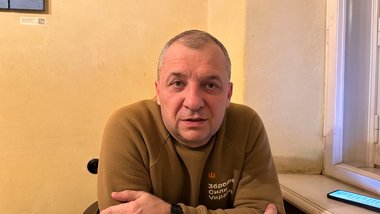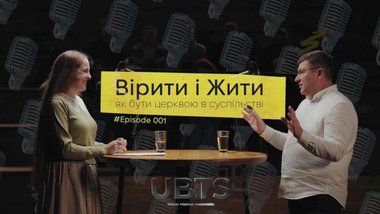Cardinal Husar and Melkite Patriarch on Unity with Orthodox
Gregory III Laham, patriarch of Antioch of the Greek-Melkites, and Cardinal Lubomyr Husar, archbishop major of Lviv, Ukraine, met with journalists Tuesday to explain their Churches' situation and eventual steps that might be taken after the Synod of Bishops. They are attending the synod, which ends Saturday. Patriarch Gregory, whose see is in Damascus, was pleased with the welcome given by the synod to Eastern-rite Catholics (who have the same origin as the Orthodox, but are in communion with Rome), and noted a certain willingness "to listen to the voice of this little Eastern flock." The issue of the relations between the Catholic and Orthodox Churches has been addressed at the synod. John Paul II has promoted the ties. Gregory III announced that he wrote a letter, which was distributed to the synod participants, in which he proposed the reinforcement of relations between Middle Eastern Catholic Churches, and those of Eastern Europe and India, for the purpose of full unity with Rome. "The synod does not end in Rome; we wish to walk together in the third millennium," the patriarch said. Cardinal Husar, who must contend with Moscow's Orthodox Patriarch Alexy II, was somewhat pessimistic. The "step from the ear to the heart might take longer and be more difficult than imagined," the Ukrainian cardinal cautioned. The cardinal said he was disappointed "by the position of the patriarch of Moscow, who continues to speak of the 'Uniates' -- a pejorative term used by Orthodox, who refer to Eastern-rite Catholics as a 'problem.'" In fact, the Russian patriarch was categorically opposed to the papal visit to Ukraine last June. According to the Ukrainian cardinal, "the closer we get to a solution of the problem between the Catholic Church and the Orthodox, the more excuses are found not to come to an agreement. Patriarch Alexy accuses Eastern-rite Catholics of using violence against Orthodox, but we are not aware of any such case." "Because of this, we have asked him to point out at least one such case, but he has not given us an answer," the cardinal concluded. Gregory III reported on progress in "the dialogue between patriarchs and the Pope, which is developing very well," and recalled that "in 1998 the Holy Father received all the patriarchs of the Middle East in audience." On that occasion, the Pontiff asked for support to have his Petrine ministry better understood. The patriarchs responded by preparing a 20-page document, including proposals to develop relations between patriarchal Churches and the Apostolic See. The Holy Father said the document would be "studied with special care." As John Paul II states in his encyclical "Ut Unum Sint," the papal ministry is a critical point for progress in the ecumenical dialogue. The Pontiff himself initiated a debate with the other Churches to find ways to apply his ministry, which might be accepted by the Orthodox, but without undermining Christ's mandate to his Apostle Peter. Gregory III announced that a conference of Eastern Catholic Churches will be held Nov. 19-23 in Rome, organized by the Oriental Institute.









